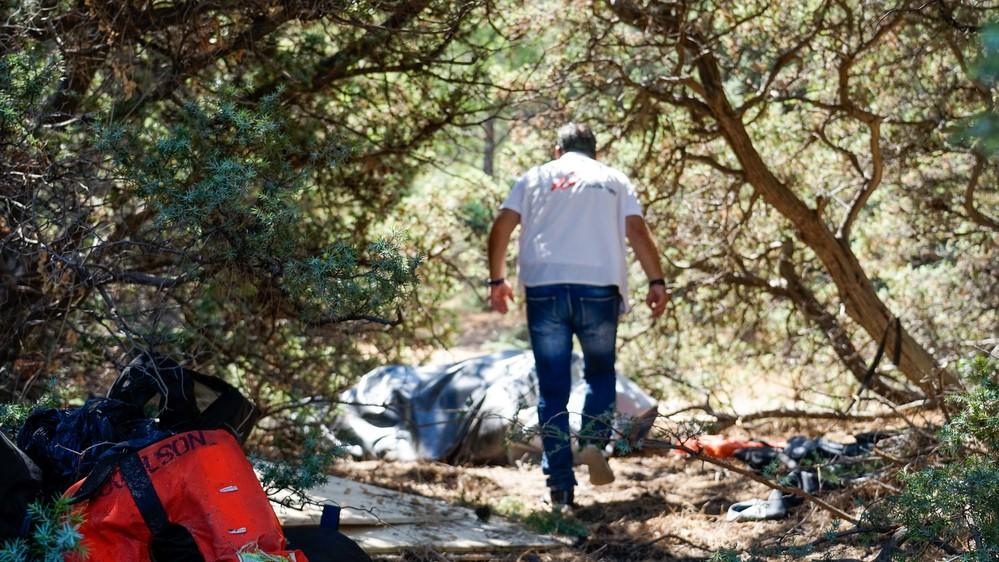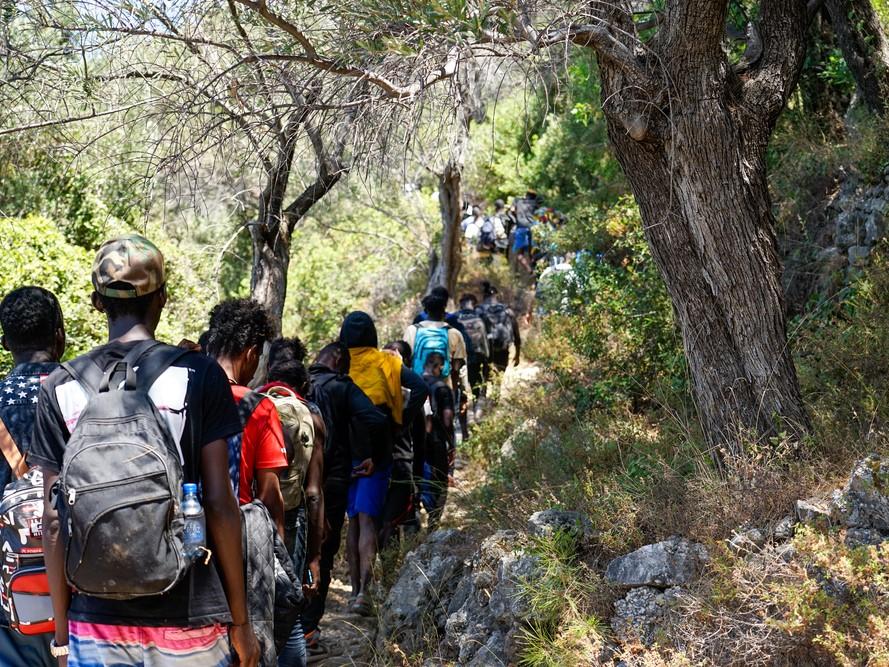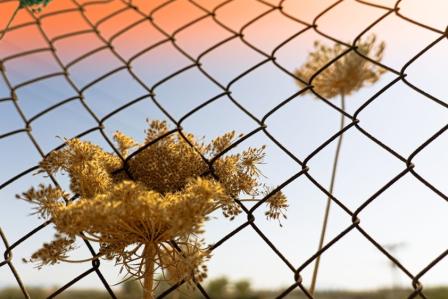Doctors Without Borders provides support to more than 570 people arriving on Samos Island

Greece 2022 © Alice Gotheron/MSF
More than 570 people, including 24 pregnant women, have received emergency medical and psychological first aid on 42 occasions over the past year by the international medical organisation Doctors Without Borders / Médecins Sans Frontières (MSF) after arriving in small boats on the Greek island of Samos. All had travelled from the coast of Türkiye, which is just a few kilometers away. Many had experienced multiple forms of violence on their journeys to seek asylum and a better life in Europe.
The small inflatable boats carrying people seeking safety usually land on Samos’ remote and mountainous coast. Terrified of being caught by the authorities and forcibly returned, most run and hide as soon as they reach land. This fear of being found by authorities has driven some people to stay hidden in the bushes for several days without food or water.
“Now, in the summertime, we see a lot of patients suffering from heat exhaustion and dehydration,” says Papachrysostomou. “During the winter months, we had to treat three people for frostbite as they were hiding outside for several days in freezing temperatures. We also frequently treat injuries from accidents occurring whilst climbing steep cliffs on the island, such as leg wounds, suspected fractures and shoulder dislocations. In April 2022, we treated an entire group who fell down a cliff whilst running from border authorities. To date, we have had to refer 37 people to the hospital by ambulance.”
Many of the new arrivals are women and children. One pregnant woman gave birth out in the open, without medical assistance, after reportedly spending more than two days hiding on Samos. Another pregnant woman was in labour when Doctors Without Borders’ medical team arrived on site.
Most people arriving on Samos describe having been intercepted by security and border authorities on the course of previous journeys, both on land and at sea, including being forcibly returned to Turkish waters, as many as nine times according to one of the people assisted by Doctors Without Borders. On multiple occasions, individuals assisted by Doctors Without Borders have told us they arrived with other people who were subsequently never found.

Doctors Without Borders' emergency medical aid response has shown the high medical and humanitarian needs amongst new arrivals. © Alice Gotheron/MSF
People treated by Doctors Without Borders report having been subjected to or witnessed physical violence or inhumane and degrading treatment, including beatings, strip-searches, forced genital examinations, thefts of possessions and being left adrift in motor-less dinghies at sea.
Loretta [not her real name]
A former Doctors Without Borders patient, describes being intercepted by border authorities on the Greek island of Lesvos and sent back twice before she managed to reach Samos.
While Doctors Without Borders teams have not directly witnessed violent interceptions and forced returns in the course of their work, reports from Doctors Without Borders patients suggest that these practices are becoming more frequent and more violent.
“Not only are violent interceptions and forced returns illegal, but they also jeopardise people’s right to apply for asylum,” says Doctors Without Borders field coordinator Sonia Balleron. “These practices also expose people to further trauma and the risk of long-lasting physical and mental health issues. It is the responsibility of Greek and European authorities to ensure that the law is respected and that the procedures regarding reception, identification and international protection are applied effectively.”
_______________________________________________________
In Greece, Doctors Without Borders provides emergency medical first aid on the island of Samos. Before going to a location to assist people in distress, Doctors Without Borders notifies all competent authorities and, once on site, coordinates with security and medical authorities for hospital referrals by ambulance. After receiving an emergency alert requesting emergency medical aid, the Doctors Without Borders team reaches out to the people, carrying first aid kits, dry clothes, supplies of drinking water and emergency food rations. Doctors Without Borders teams always wear white jackets clearly marked with the Médecins Sans Frontières (MSF) logo during the humanitarian interventions.
After Doctors Without Borders teams have finished providing emergency medical and psychological first aid, the security authorities take the new arrivals to the Closed Controlled Access Centre (CCAC), a high-security reception centre located about an hour’s walk from the main town of Vathy. After five days’ quarantine, Doctors Without Borders is allowed to visit patients to check on their medical condition and make sure they have timely access to further medical care. Attending the reception centre is the only way for new arrivals to register. People have to wait in the reception centre while they endure long and complex legal procedures for the completion of their asylum claims.
